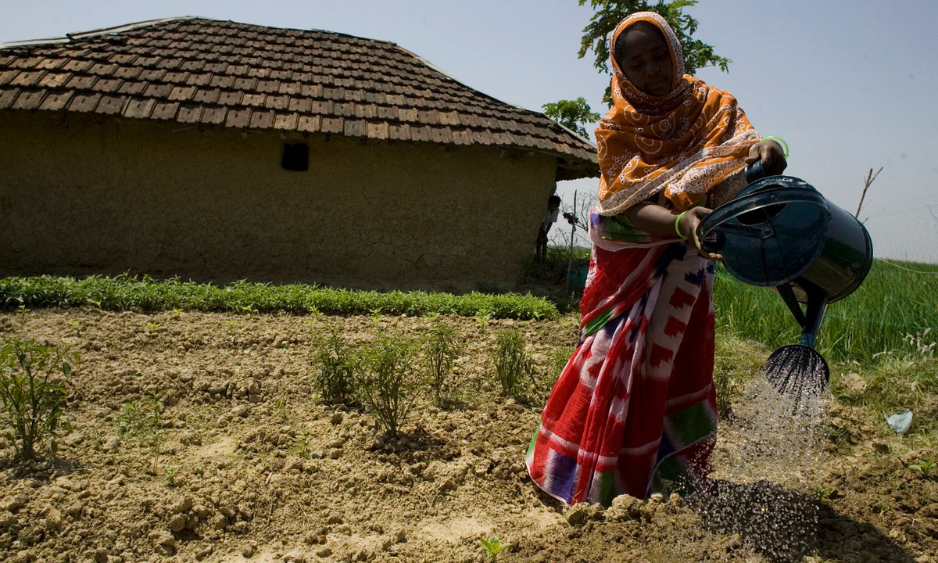SEED FUNDING JOINT PROGRAMMES
Jordan
Transforming Jordan's Agri-food System towards greater sustainability and resilience



PROJECT TITLE | Transforming Jordan's Agri-food System towards greater sustainability and resilience |
| Context | Since 2021, Jordan has placed food security and system at the forefront of its developmental goals with the adoption of the National Food Security Strategy (NFSS) for 2021–2030. The NFSS envisions access to safe, affordable, and nutritious food for all by 2030. The 2022-2024 National Food Security Action Plan for the implementation of the NFSS prioritizes food availability, improved access to and better utilization of food, and strengthening governance mechanisms. |
| PUNOs | FAO, UNIDO |
| Contribution to SDGs | SDG 2 Zero Hunger, SDG 8 Decent Work and Economic Growth |
| Contribution to other SDG transitions | Decent Jobs and Universal Social Protection |
| Duration | September 2024 – August 2025 |
| Expected financial leverage | USD 30,000 – co-financing from FAO, UNDO, MoA |
| Alignment with SG Call to Action | Policy integration; Food systems governance; Research, data, technology and innovation; Inclusive and participatory design; Private sector engagement; Financing |
| Outcomes | The JP strengthens the government’s capacity to identify and implement strategic programs that deliver positive outcomes across multiple dimensions of food systems, including production, post-harvest, processing and distribution. The JP emphasizes the inclusion of refugees, women and youth in food systems. |
| Partners |
|
| Outputs |
|
National Convenors propel joint implementation of the food systems transformation and climate action agendas
National Convenors explore the crucial intersection of food systems transformation and climate action, providing valuable input for the development of a new Convergence Initiative.

©FAO/Giulio Napolitano
Between November 14-16, 2023, the UN Food Systems Coordination Hub, in collaboration with the 4SD Foundation, organized five regional touchpoints to introduce the Food Systems and Climate Action Convergence Initiative to National Convenors. With over 200 participants, the event provided a platform for Convenors to share insights and collaborate on shaping this groundbreaking initiative.
Introducing the Convergence Initiative
The Convergence Initiative stems from the recognition, highlighted in the UN Secretary-General's Report of the Food Systems Summit Stocktaking Moment (UNFSS+2), that current food systems contribute significantly to pollution and greenhouse gas emissions. The Secretary-General’s Call to Action for Accelerated Food Systems Transformation urges leaders to incorporate food systems strategies into national policies, aligning them with climate action and nature preservation goals.
Elevating the importance of food systems, the United Arab Emirates COP28 Presidency launched the Food Systems and Agriculture Agenda during the UNFSS+2 in Rome. This agenda prioritizes aligning national food systems pathways with climate-related targets by 2025, including Nationally Determined Contributions (NDCs) and National Adaptation Plans (NAPs). It aims to secure commitments from governments and all stakeholders, solidifying the transformation of food systems as a central item on the global climate agenda.
The initiative's objectives
As part of these broader efforts, the Convergence Initiative is designed to assist countries in maximizing synergies between food systems transformation and climate action, aligning with COP30 and UN Food Systems Summit +4 Stocktaking Moment in 2025. It aims to catalyze advancements toward climate-smart, people-centric, and nature-positive food systems, promoting a fair, inclusive, and sustainable future aligned with the 2030 Agenda for Sustainable Development. The initiative will actively promote a national convergence process, offering support through periodic technical assistance, orientation sessions, facilitation of resources, including the use of convergence dialogues, and ongoing guidance, fostering cross-sectoral collaboration and stakeholder engagement on the journey towards COP30.
Input from National Convenors
During the touchpoints, National Convenors and their teams were prompted to consider key questions to support the development of this Convergence Initiative. The questions aimed to encourage reflection on existing mechanisms for integrating food systems transformation and climate action agendas, the extent of integration in national policies, and the anticipated opportunities and challenges in converging these agendas.
The insights gathered from the National Convenors during the touchpoints emphasized the importance of aligning food systems transformation with climate action to achieve the Sustainable Development Goals (SDGs). They outlined ongoing efforts to link these agendas and welcomed the Convergence Initiative for its potential to contribute significantly at both national and regional levels while adapting to the diverse contexts of each country. Participants also recognized its ability to foster cooperation and synergy among diverse stakeholders operating at various scales.
The path forward
The regional touchpoints marked a significant step in fostering international collaboration to address the complex interplay between food systems and climate action. The Convergence Initiative, with its strategic objectives and support mechanisms, holds promise in steering countries towards more sustainable and resilient futures. As the initiative gains momentum, the global community looks forward to witnessing transformative changes in food systems and climate action on the path to achieving shared environmental and developmental goals.
- The UN Food Systems Coordination Hub at COP28
- Food Systems Solutions Dialogues with National Convenors
